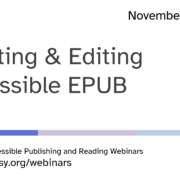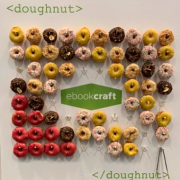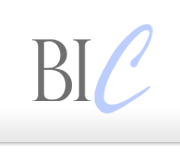Accessible Books Consortium Celebrates 100th Signatory to ABC’s Charter for Accessible Publishing
 Hachette Livre has become the 100th signatory of the Accessible Books Consortium (ABC) Charter, marking an important milestone for the WIPO-sponsored alliance working to increase the number of books in accessible formats for use by hundreds of millions of people around the globe who are blind, visually impaired, or otherwise print disabled.
Hachette Livre has become the 100th signatory of the Accessible Books Consortium (ABC) Charter, marking an important milestone for the WIPO-sponsored alliance working to increase the number of books in accessible formats for use by hundreds of millions of people around the globe who are blind, visually impaired, or otherwise print disabled.
By signing ABC’s Charter for Accessible Publishing publishers commit to making its products fully accessible to all users. Specifically the charter asks publishers to:
- state their accessibility policy on their web-site
- nominate a senior manager who will be responsible for accessibility
- raise awareness among, and provide technical training for, relevant staff
- designate and publicise a point of contact in their organization to assist persons with print disabilities to access their publications
- test their digital publications for accessibility, incorporating appropriate feature descriptions and metadata
- monitor their progress in this area
- promote the adoption of accessibility standards throughout the supply chain
- support national and international collaboration with organizations representing persons with print disabilities so as to increase the availability of publications in accessible formats
WIPO Director General Francis Gurry welcomed the development, saying: “We are pleased to see a growing number of key industry players signing the Charter for Accessible Publishing. This advances our global efforts to increase the number of books available for use by people with print disabilities.” He added: “Hachette Livre is a world-leading publisher and its membership will make a big difference in making accessible format books available to blind and visually impaired persons.”
Hachette Livre Chairman and Chief Executive Officer Arnaud Nourry said “For the book industry, making books accessible to the widest readership, including readers who are blind, visually impaired, or print disabled, not only makes economic sense, but is a moral imperative. If we, publishers, do not pioneer this duty on an industrial level, who will?”






